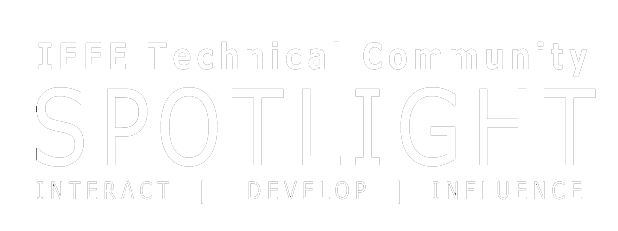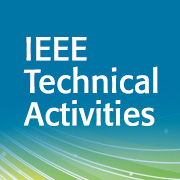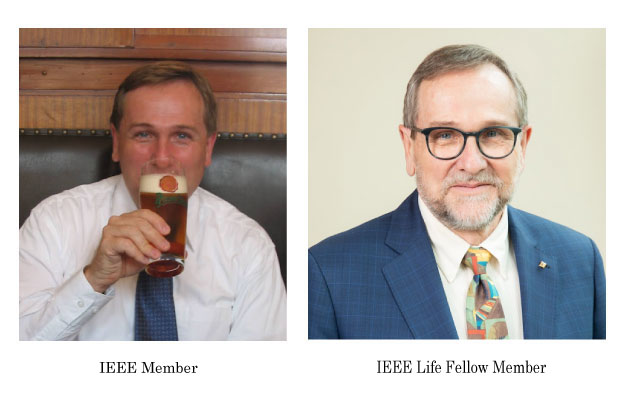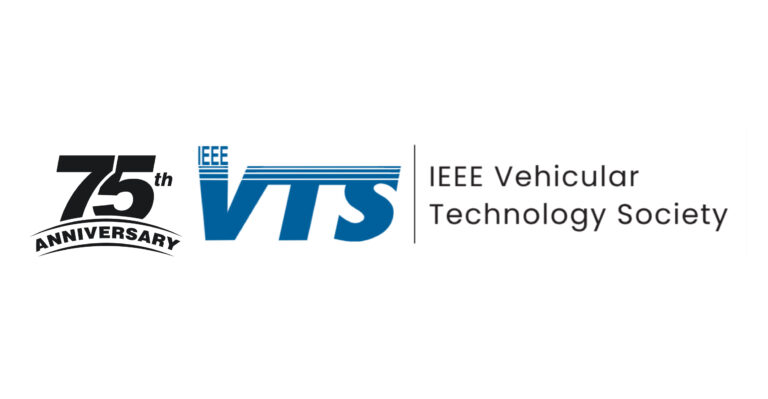 In the December 2015 issue of IEEE Technology and Society Magazine (IEEE T&S), 2015-2016 Society on Social Implications of Technology (SSIT) President Greg Adamson discusses Improving Our ‘Engineering-Crazed’ Image. Adamson opens his message with a mention of the recent VW environmental deception debacle, and the rift that such events create between the engineering community and the general public. “In addition to the anticipated financial impact on the company,” Adamson writes, “it is a setback to the credibility of technologists, one that brings ethics to the fore.” Adamson insists that, in situations such as these, an engineer’s primary loyalty should be to public interest, and not his or her employer.
In the December 2015 issue of IEEE Technology and Society Magazine (IEEE T&S), 2015-2016 Society on Social Implications of Technology (SSIT) President Greg Adamson discusses Improving Our ‘Engineering-Crazed’ Image. Adamson opens his message with a mention of the recent VW environmental deception debacle, and the rift that such events create between the engineering community and the general public. “In addition to the anticipated financial impact on the company,” Adamson writes, “it is a setback to the credibility of technologists, one that brings ethics to the fore.” Adamson insists that, in situations such as these, an engineer’s primary loyalty should be to public interest, and not his or her employer.
Below, Adamson expands upon his IEEE T&S article, and discusses in more depth his opinions on engineering and ethics.
For those interested in further discussion of engineering ethics – and the world’s perception of it – please visit IEEE SSIT’s website.
How would you further define “engineering-crazed,” and what other applications/situational impacts can you think of to which this term can be applied?
“Engineering-crazed” is a media term. What the journalist seems to be suggesting is that a technologist can focus on a vision of technology prowess and lose all perspective. Concern for this can be found in popular literature. The “crazed scientist” who builds Frankenstein (in the movie versions, not in the original thoughtful book) could be an archetype. Within the technological community we see cases of technologies that become self-perpetuating, losing sight of their original social purpose. A serious example occurred in Australia in the 1980s with the building of hydroelectric dams on the picturesque island of Tasmania. Over time the value of each dam became less important than the need to continue building dams, and it took a large citizens’ movement to rein in the dam builders and protect the heritage environment.
You say this is a setback to the credibility of technologists. What are the negative implications of such a setback? How can this be alleviated?
During periods of significant technical change, public trust is probably the most important asset the technology community has. For the past three years the vehicle industry is the subject of enormous debate on ethics in autonomous design: how should an autonomous vehicle reach a decision if all options lead to injury or death? For example, should the vehicle cause injury to a driver in order to avoid killing a pedestrian? Autonomous vehicles could significantly reduce the loss of life due to accidents, so their introduction strongly suggests a public good. “Prove that there isn’t a secret module in this car that deliberately caused my injury” isn’t a demand the industry would welcome. If the industry loses public trust, the autonomous vehicle industry’s future will be weakened.
What do you think?
IEEE Collabratec sign up is free using your IEEE Account.
Why is engineering ethics so poorly perceived?
Within the technology community, some professionals still operate in blissful ignorance; they are not aware that they are being required to make ethical decisions, and not surprisingly therefore make poorly informed ones. Fortunately, this is less common today than 50 years ago. From outside the professional community, however, there is very little awareness of this change in the profession. The broad public trusts, hopes, or doubts that engineers will “do the right thing”. This (mostly) benign ignorance makes us vulnerable to shifts in opinion. A handful of high profile cases where technologists are seen to be behaving badly could damage the reputation of our profession. On the other hand, if technologists are seen as proactive, protecting their organisations and profession from bad behaviour, we will build trust.
Should engineering ethics have to adapt to the times, especially in the era of surveillance devices, computer-controlled vehicles, and/or the presumption of free IP on the internet? Is there a concrete answer, or is this situational? Can there be leniency? Is it okay to be unethical?
We must adapt to the times, and this is why it isn’t possible to survive if we follow an unethical approach. In the past “accidental” controls prevented intrusive technology overstepping social boundaries. Surveillance didn’t matter because the videotape devices were often faulty, and there was no collation of all images. Today the world is “enclosed” by technology. It is “tightly coupled”. This can be seen as “working better”. Alternatively we can see that the room for failure is diminishing. Data gathered and inaccurately aggregated can impact individuals in unexpected ways, leaving them with no way of knowing how it happened or how to correct the results. As Poincare explained in the late 19th century, in deterministic systems a small change in a cause yields only a small change in the result, while in a statistical system a small change can yield a result of any finite size. One could say our world is becoming less deterministic. It is becoming harder to know what impact poor ethical decisions will have, and this makes them more dangerous.
In some industries there is an expectation of unethical behaviour, for example in organized crime. In others there is an expectation of trust, such as in health care. Presumably our profession would prefer to have expectations of trust.
What are the biggest threats to “good ethics” in terms of the engineering profession?
Ethical behavior may be viewed as an individual moral obligation, facing the combined weight of organizational self-interest and bureaucratic inertia. Perhaps a better way to think of it is as a shared obligation. All technology professionals share an interest in protecting their jobs, their organizations, and their profession. If we look at the recent history of financial services, there have been something like half a trillion dollars in regulatory fines for legal breaches. This trend is now found in relation to technology failure. This decade we have seen the cost to BP of the 2010 Gulf of Mexico oil spill (tens of billions of dollars), and speculation of the eventual cost to VW for deliberately misleading behaviour. Organizations need ethical technologists to protect them from reputational damage and financial loss. From this perspective the biggest threat to ethics is poor organizational support to the ethical technologist, for example, whistle-blower protection, particularly in organizations with a culture of “shoot the messenger.”
A completely separate threat is the growing responsibility of technologists for areas previously managed by other professions, such as in health care and the life sciences. Here the threat is the lack of understanding of the complexities that arrive with the new opportunities. For example, if multiple embedded medical devices from different suppliers within one person fail to share life-critical data, due to technical or legal barriers, then standard technical practices may become life-threatening.
How can we bring this dilemma into dialogue between both practitioners and the general public (and how does an organization such as the IEEE/SSIT or other “professional organizations that promote public interest” facilitate this)?
Establishing an effective dialogue on ethics between technology professionals and the broader community is primarily about acknowledging our limitations. This may be difficult as we work in a culture of problem solving, and this includes designing to avoid limitations in our products. Nevertheless, here are some limitations we may need to acknowledge:
- Technologists are just one set of professionals, and our fields of expertise are limited. As required we work with social scientists, medical professionals, lawyers, architects, political scientists, policy specialists, elected officials and hundreds of other groups.
- In a dialogue with non-technical audiences, we cannot insist on framing the dialogue in technical terms. We do not understand a community, just as they do not understand a technology, until we have the dialogue.
- We cannot insist that our view is “right” or “true”. We should also avoid appealing to metaphysical concepts such as “progress”. All we can reasonably argue is that our view is “fact based”, accepting that “facts” include traditions, feelings, and community priorities.
- Technologists are in general poor communicators. Technologists place more value on what we say rather than how we say it. Courses on the art of rhetoric are not found in undergraduate engineering degrees!
- We are sometimes completely wrong in our own fields of expertise. For example, the crash of the Mars space probe in 1998 due to confusion over units of measurement is a cause for reflection.
Taking these points on board, the IEEE Society on the Social Implications of Technology (SSIT) seeks to build bridges to the social sciences and humanities; to understand the reasoning of those who “oppose technology”, even if we disagree with the reasoning; and to let the broader community know that technology professional organizations care about these issues.
What should this dialogue accomplish?
A dialogue can aim to raise the quality of public discourse. “Fact-based” discussion can be counterposed to a prejudice or ignorance based one, and there is an opportunity for the technical community to contribute to a reduction in prejudice and ignorance.
What responsibility does a professional organization have to uphold and promote good ethics?
IEEE has had a code of ethics for more than 100 years, and should be proud of this. This is a living code, updated to reflect community and professional attitudes. Point 10 of the code places a responsibility on all IEEE members to “assist colleagues and co-workers in their professional development and to support them in following this code of ethics.” This responsibility is held both individually, and collectively by IEEE. We see this done in a wide range of Technical Society activities, at conferences, in publications, and in other ways.
IEEE can also provide support to individuals and organizations in standing up for principles and arguing why these principles are important. For example, IEEE-USA is actively explaining the damage that could occur if technology companies are forced to allow back-doors in their security. In this case the ethical path isn’t contrasted to a non-ethical path, but to a path of ignorance. Actions such as this can help show to the community the ways in which our ethical practices are helping to protect the community.
***
The Society on Social Implications of Technology (SSIT) of the Institute of Electrical and Electronics Engineers (IEEE) is concerned with how technology impacts the world, and with how the application of technology can improve the world. The Society focuses on issues such as: humanitarian engineering; environmental issues including climate change, green technologies, and sustainable design; privacy and security; other economic, health, and safety implications of technology; engineering ethics and professional responsibility; engineering education including k-12 and engineering education in social implications of technology; history of technology; public policy related to engineering, technology and science; health and healthcare technologies and impact; reliable energy and social issues related to energy, and social issues of information technology and telecommunications.






10 Responses
I fear the Public (note caps) trust is damaged less by ignorance and suspicion of our motives than by employers’ unwillingness to oblige a desire to build products we can take real pride in bringing to market.
Industries are known to have agitated for reduction of regulatory burdens meant to protect the public from too much haste to market that may have been “cost reduced” enough to make compliance a tossup; Volkswagen is perhaps just a tip of the iceberg, and many of us in other industries have seen schedules slip and budgets grow when predictable risks were dismissed, compliance was assumed, and aggressive schedules left no room for remediation of problems.
Ethics is a corporate problem, not just an individual one; who had to roll over to get VW to fudge the tests?
Where should one’s loyalities lie ? . There is no credible issue !
1. Species
2. Earth
3. Nation
4. Employer
5. Family
6. Self
That pretty well covers it !
The key statement (“employers’ unwillingness to oblige”) from
Cortland Richmond is crucial. Business managers’ profit-above-all stance, leading to ever-higher consumption of defense allocation, leaves insufficient amounts for support of returning veterans. In the autumn of 2004 I wrote a “Today’s Engineer” column about that. Response was nonexistent. That speaks volumes about our industry’s priorities.
This is a question the VW engineers should have taken more seriously. I note one poster here in his list of priorities didn’t even list ethical behavior in the profession as any level of priority. Until we engineers get over that, we will never be considered “professionals” in the sense of doctors or lawyers.
IEEE’s Board of Directors Need to Comply With Article 10 of Its Own Code of Ethics by Supporting its Ethical Engineers/Technologists
–
Walter L. Elden, P.E.(Ret)
IEEE and SSIT Life Senior Member
–
In this article, “Adamson insists that, in situations such as these, an engineer’s primary loyalty should be to public interest, and not his or her employer”. This may work, if employed engineers/technologists were first licensed PEs, or equivalent, and were engaged by a written contract, instead of as an “at-will” employee, meaning they, as in the USA, can be fired for any reason. And under those conditions, an ethical engineer when faced with a dispute with his/her employer, has little or no leverage to press his/her ethical point, as it places the engineer in a very disadvantage position.
–
But, as a Member of the IEEE, the engineer has access to the full services of its nearly 40 year old Ethics and Member Conduct Committee (the EMCC), currently chaired by Loretta Arellano, to seek “ethics advice”, and “ethical support”, in employee-employer disputes. WRONG!!!!! I write WRONG here, for since the early 2000’s, the IEEE Board of Directors has restricted the EMCC from giving “ethics advice” and “ethical support” in employee-employer disputes, but during the period 1978-1998, it provided both successfully, as it was originally created to.
–
Both of these restrictions are in spite of Adamson’s correct statement: “Point 10 of the code places a responsibility on all IEEE members to “assist colleagues and co-workers in their professional development and to support them in following this code of ethics.” And here, the phrase “IEEE members” applies not only to the rank and file members, but also to all those members who make up the Board of Directors.
–
Until some IEEE Board removes both of these restrictions from the EMCC, IEEE engineers/technologists, faced with being placed in an ethical dispute with one’s employer, will be left out there alone, with the world’s largest technical professional society, IEEE, letting them hanging and swinging in the wind.
–
To read more on this, go to my proposal for an alternative to the EMCC, if it will not offer ethics advice and support:
–
A Strategy and an Alternative to the Ethics and Member Conduct Committee to Offer Advice and Support.docx
–
https://sites.google.com/site/webpagesofwalterelden/home/ieee-ethics-position-papers/A%20Strategy%20and%20an%20Alternative%20to%20the%20Ethics%20and%20Member%20Conduct%20Committee%20to%20Offer%20Advice%20and%20Support.docx
Many of us faced with unethical corporate conduct can only 1) leave the firm or 2) “blow the whistle”.
Blowing the whistle carries the taint of being disloyal to the employer, a taint that will probably be passed along when any prospective employer asks one’s previous place of work if a claim to have experience earned there is correct.
Leaving a firm requires enough savings or outside income to be able to support oneself and one’s family long enough to find more employment.
I had a military pension, and later, Social Security as well. Not everyone facing this dilemma has these resources; they face very uncomfortable alternatives: Jump ship without any visible prospects, or “rat on the Boss” and possibly lose any further work in his profession. Worse is possible.
It helps to be good at persuading managers not to kill people when you’re trying to save their lives. I did that at one place where I was employed and it worked. But “corporate inertia” is almost an oxymoron – corporate almost always implies inertia – and every small success is to be treasured.
Many of us got paid to, essentially, say “No, you can’t do this.” With experience, we probably learned how to say “It’s better if you do THAT.” Diplomats, already!
Organizations, even organizations one belongs to, are reluctant to place themselves between one of their members and another organization especially where lawsuits are not less numerous than the lawyers employed.
I have some very good memories of my accomplishments in engineering positions, memories made sweeter by the fact that I did not have a formal engineering education, and had never managed to put together a degree. I have sadder ones of how many engineers and technicians I saw didn’t understand what we did – and the pressure exerted to get them to compromise doing it well for doing it quickly and cheaply.
If my employers had spent the money and taken the care up-front to do things right, they would not have had to delay shipment and incur cost overruns because they failed verification tests Doing it right might actually be cheaper.
Google “engineering-crazed”. There aren’t very many unique hits. This article and Adamson’s 2015 piece make up a notable number of those hits. The referenced Bloomberg article used the term one time only to characterize VW executives, not its “technologists”. There seems to be little justification for identifying it as a “media term”. I say that “image-crazed”, “profit-crazed” and “power-crazed” people who control technologists are bigger threats to ethical behavior than people who love technology and engineering.
The dichotomy is when an engineer does something unethical it is appalling, when an engineer explains to a client that something cannot be done because it is unethical they are appalled by the arrogance and lack of service.
I recommend that all engineers take the Obligation of the Engineer. While it can be taken at any time in your career, many schools now offer it around graduation, similar to the Hippocratic oath taken by Doctors at graduation: I took it after 30 years with the graduates at Marquette University.
Obligation
I am an Engineer. In my profession I take deep pride. To it, I owe solemn obligations.
Since the Stone Age, human progress has been spurred by the engineering genius. Engineers have made usable nature’s vast resources of material and energy for Humanity’s [Mankind’s] benefit. Engineers have vitalized and turned to practical use the principles of science and the means of technology. Were it not for this heritage of accumulated experience, my efforts would be feeble.
As an Engineer, I pledge to practice integrity and fair dealing, tolerance and respect, and to uphold devotion to the standards and the dignity of my profession, conscious always that my skill carries with it the obligation to serve humanity by making the best use of Earth’s precious wealth.
As an Engineer, [in humility and with the need for Divine guidance,] I shall participate in none but honest enterprises. When needed, my skill and knowledge shall be given without reservation for the public good. In the performance of duty and in fidelity to my profession, I shall give the utmost.
Note: Brackets indicate the original wording of the Obligation. Either wording is acceptable, but new certificates have the newer wording.
For more information see http://www.order-of-the-engineer.org
Incidentally, I first was exposed to the duty of an engineer when I joined the Sigma Phi Delta Engineering Fraternity in College and swore to follow the Code of Ethics which includes “…He should live so that his actions shall never besmirch his own honor, and thus maintain the honor of the Engineering Profession.”
Many IEEE engineers do not have professional engineering licenses. A license to practice engineering proves a minimal understanding but also requires continuing education and responsibilities beyond the employer. IEEE should encourage licensure as one path of many to improve this situation.